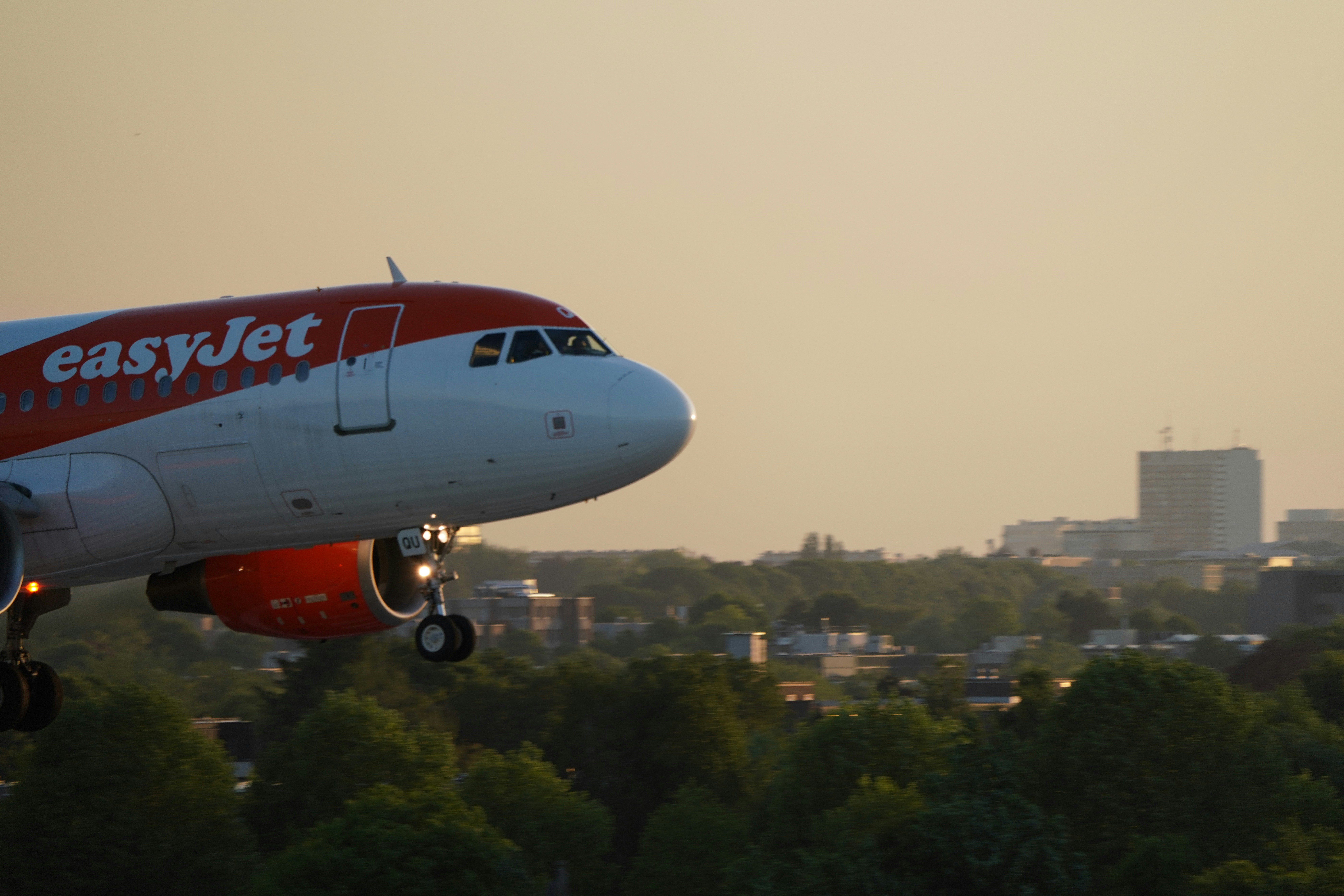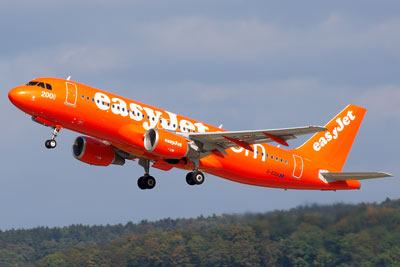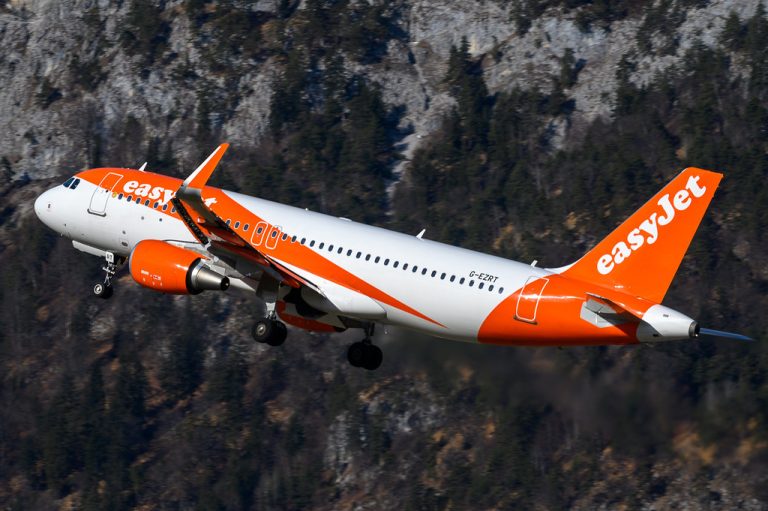easyJet plc (LON:EZJ) has announced its trading update for the six months ended 31 March 2024.
easyJet reduces winter losses by >£50 million year-on-year as demand for our flights and holidays continues to build well for summer
- Strong revenue performance in Q2
- Passengers1 +8% YoY
- RPS +8% YoY- ahead of mid-single digit guidance
- Load factor -1ppt YoY
- Ticket yield +9% YoY
- Ancillary yield +10% YoY
- Winter FY24 loss reduced by >£50 million YoY
- H1 RPS +5% YoY
- H1 CPS ex fuel flat YoY – in line with guidance
- easyJet holidays c. £31 million PBT, +206% YoY
- Headline loss before tax expected to be £340 – £360 million
- Capacity growth on track
- H2’24 c.59m seats on sale, c.8% increase YoY
- Q3 Capacity on sale c.28m, c.8% increase YoY
- Q4 Capacity on sale c.31m, c.7% increase YoY
- H2’24 c.59m seats on sale, c.8% increase YoY
- Positive outlook for FY24
- Q3 Airline RPS expected to be slightly up YoY, with the Easter peak falling into March
- Q4 Airline RPS remains well ahead YoY with c. 30% of the program sold
- Continue to expect H2 CPS ex fuel to be up low single digits YoY
- easyJet holidays continues to expect >35% customer growth YoY in FY24
Summary
easyJet has reduced its first half “seasonal” losses, with headline loss before tax expected to be between £340 and £360 million. This improvement was driven by targeted capacity growth where demand was strongest, alongside productivity and utilisation benefits which enabled ex-fuel unit costs to remain flat year-on-year. The result was achieved despite headwinds from fuel cost (per seat inflation of +6%) and the conflict in the Middle East which resulted in a direct impact2 of c. £40 million in H1’24. Flying into Israel has now been suspended for the summer with this limited capacity (c.0.3% of planned summer flying) being redeployed across the network. We continue to drive growth at easyJet holidays, with £31 million of profit before tax (+206% compared to H1’23) and 42% customer growth year-on-year.
Easter demand was particularly strong, benefitting March due to its early timing. Operational performance was good with peak daily flights broadly in line with summer levels. On-Time Performance (OTP) over Easter improved year-on-year as a result of easyJet’s targeted resilience actions.
Bookings for summer 2024 continue to build well, with an increase in volume and pricing compared to the same period last year, underpinned by strong demand for easyJet’s primary airport network. Q3’24 currently has c. 60% of the program sold, +1ppt and Q4’24 is c. 30% sold, +2 ppts year-on-year. easyJet holidays has currently sold 70% of the plan for this summer.
Johan Lundgren, CEO of easyJet, said:
“The importance that consumers place on travel coupled with easyJet’s trusted brand has driven good demand for our flights and holidays. Our growth and focus on productivity have reduced winter losses by more than £50 million.
“We have further enhanced our network with the launch of new bases in Alicante and Birmingham providing greater choice for consumers across Europe.
“We are well set up operationally for this summer season where we expect easyJet to be one of the fastest growing major airlines in Europe and take more customers on easyJet holidays than ever before.”
Fuel & FX Hedging
| Jet Fuel | H2’24 | H1’25 | USD | H2’24 | H1’25 | |
| Hedged position | 69% | 43% | Hedged position | 70% | 46% | |
| Average hedged rate ($/MT) | $822 | $825 | Average hedged rate (USD/GBP) | 1.25 | 1.25 | |
| Current spot ($/MT) at 17.04.23 | c. $865 | Current spot (USD/GBP) at 17.04.23 | c. 1.25 | |||
Capacity
During Q2 easyJet flew 19.3 million seats, in line with guidance, a 9% increase on the same period last year when easyJet flew 17.7 million seats. Load factor was 87% (Q2 FY23: 88%).
Passenger1 numbers in the quarter increased to 16.8 million (Q2 FY23: 15.6 million).
| January 2024 | February 2024 | March2024 | Q2FY24 | Q2FY23 | |
| Number of flights | 27,756 | 36,630 | 42,828 | 107,214 | 99,273 |
| Peak operating aircraft | 275 | 278 | 297 | 297 | 267 |
| Passengers1 (thousand) | 4,216 | 5,767 | 6,861 | 16,844 | 15,631 |
| Seats flown (thousand) | 5,008 | 6,596 | 7,720 | 19,324 | 17,692 |
| Load factor 3 | 84% | 87% | 89% | 87% | 88% |
Revenue, Cost and Liquidity
Total group revenue and headline costs for the first half are expected to be around £3,270 million and around £3,620 million respectively. Pricing was very strong at the start of the period, with October seeing RPS of +12% year-on-year. However, the onset of the conflict in the Middle East on 7 October resulted in a pause in flights to Israel and Jordan and a temporary slowdown in flight bookings for the wider industry. Demand and bookings recovered strongly from late November with the second quarter seeing RPS of +8% year-on-year, supported in part due to the start of Easter holidays falling into March.
Our focus on increased productivity and utilisation offset inflationary cost pressure, which all airlines and the wider supply chain continue to see. This resulted in non-fuel unit costs being flat year-on-year, as previously guided.
easyJet continues to have one of the strongest investment grade balance sheets in European Aviation (Baa2, stable, by Moody’s and BBB, positive, by Standard & Poor’s). As at 31 March 2024 our net cash position was c.£146 million (31 December 2023 net debt: £485 million). easyJet repaid a €500 million Eurobond which matured in October 2023 and then on 20 March 2024 easyJet issued an €850 million bond with a coupon of 3.750%, maturing in 2031.
Financing costs benefitted from a decrease in gross debt and a rise in the interest rate on floating-rate cash deposits. However, foreign exchange movements over the period resulted in a non-operational, non-cash FX loss of £6 million from balance sheet revaluations.
| (£’m) | Low | High |
| H1 24 Group headline EBITDAR range | 5 | 25 |
| H1 24 Group headline EBIT range | (350) | (330) |
| H1 24 Group headline loss before tax range | (360) | (340) |
| H1 24 numbers are circa and rounded to the middle of the range provided above | H1’24 | H1’23 | VarianceFavourable / (Adverse) |
| Passenger revenue (£’m) | 2,050 | 1,749 | 17% |
| Airline ancillary revenue (£’m) | 910 | 767 | 19% |
| Holidays revenue4 (£’m) | 310 | 173 | 79% |
| Group revenue (£’m) | 3,270 | 2,689 | 22% |
| Fuel costs (£’m) | (915) | (773) | (18%) |
| Airline headline EBITDAR costs ex fuel (£’m) | (2,055) | (1,824) | (13%) |
| Holidays EBITDAR costs4 (£’m) | (285) | (161) | (77%) |
| Group headline EBITDAR costs (£’m) | (3,255) | (2,758) | (18%) |
| Group headline EBITDAR (£’m) | 15 | (69) | 122% |
| Airline depreciation & amortisation (£’m) | (352) | (321) | (10%) |
| Holidays depreciation & amortisation (£’m) | (3) | (2) | (50%) |
| Group headline EBIT (£’m) | (340) | (392) | 13% |
| Airline financing costs excluding balance sheet revaluations (£’m) | (13) | (46) | 72% |
| Holidays financing costs excluding balance sheet revaluations (£’m) | 9 | 0 | n/a |
| Balance sheet revaluations (£’m) | (6) | 27 | (122%) |
| Group headline LBT (£’m) | (350) | (411) | 15% |
| Airline passenger revenue per seat (£) | 48.34 | 46.24 | 5% |
| Airline ancillary revenue per seat (£) | 21.53 | 20.22 | 6% |
| Total airline revenue per seat (£) | 69.87 | 66.46 | 5% |
| Total airline RASK (p) | 5.98 | 5.58 | 7% |
| Airline headline cost per seat ex fuel (£) | 57.28 | 57.15 | (0%) |
| Airline headline CASK ex fuel (p) | 4.90 | 4.80 | (2)% |
| Airline fuel cost per seat (£) | 21.60 | 20.43 | (6%) |
| Airline headline total cost per seat (£) | 78.88 | 77.58 | (2%) |
| Sector length (km) | 1,168 | 1,192 | (2%) |
| Cash and money market deposits (£’bn) | 3.3 | 3.5 | (6%) |
| Net cash/(debt) (£’m) | 146 | (156) | 194% |
1) Represents the number of earned seats flown. Earned seats include seats which are flown whether or not the passenger turns up, as easyJet is a no refund airline and once a flight has departed, a no-show customer is generally not entitled to change flights or seek a refund. Earned seats also include seats provided for promotional purposes and to staff for business travel.
2) Direct impact of £40 million relates to the lost contribution in H1’24 from pausing flying to Israel and Jordan alongside the demand softness seen in Egypt following the onset of the conflict in the Middle East on 7 October 2023.
3) Represents the number of passengers as a proportion of the number of seats available for passengers. No weighting of the load factor is carried out to recognise the effect of varying flight (or “sector”) lengths.
4) easyJet holidays numbers include elimination of intercompany airline transactions.









































